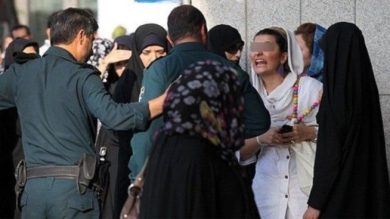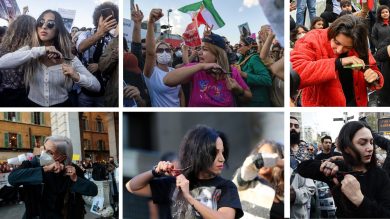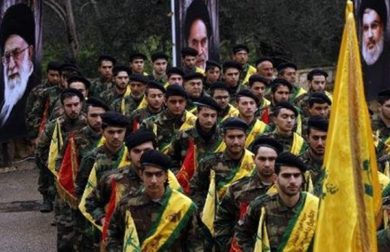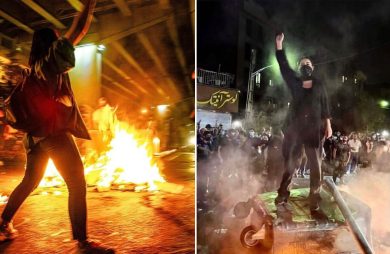As the struggle for women’s rights intensifies inside Iran, a powerful force has emerged beyond its borders: the Iranian diaspora. From the streets of Berlin and Paris to digital spaces across the globe, Iranians living abroad are not only raising awareness but also actively supporting the women-led resistance in Iran. Their voices, resources, and advocacy serve as a vital bridge between Iranian activists at home and the global community.
This article explores how the Iranian diaspora—through protest, policy advocacy, fundraising, digital campaigns, and cultural diplomacy—plays a key role in uplifting the voices and rights of Iranian women, amplifying their demands for freedom, dignity, and justice.
1. The Diaspora as a Voice Amplifier
A. Media Exposure and Storytelling
Iranian women face heavy censorship inside Iran, especially by the IRGC and state-run media. Diaspora voices—through journalism, social media, and international interviews—ensure their stories reach a global audience.
• Iranian-American journalist Masih Alinejad has turned her social media platforms into megaphones for women’s resistance.
• Diaspora-run media outlets like Iran International and Manoto TV continuously spotlight the voices of imprisoned or silenced Iranian women.
B. Exposing State Violence
With the internet often disrupted in Iran, diaspora activists help expose state brutality, especially during protests. Through satellite access and VPNs, they:
• Share videos of protests and crackdowns.
• Fact-check regime disinformation.
• Coordinate with NGOs and human rights monitors.
2. Mobilizing Global Solidarity
A. Organizing Global Protests
From Los Angeles to London, diaspora Iranians have organized massive rallies in support of the “Women, Life, Freedom” movement. These:
• Put international pressure on Western governments to act.
• Keep Iranian issues in the global media spotlight.
• Build cross-cultural coalitions with feminist and human rights groups.
B. Influencing Policy and Sanctions
Diaspora lobbying efforts have helped:
• Push for the designation of the IRGC as a terrorist organization in countries like the U.S.
• Advocate for Magnitsky sanctions against Iranian officials involved in human rights abuses.
• Encourage parliaments and institutions (EU, UN) to formally condemn gender-based violence in Iran.
3. Supporting Women Activists and Prisoners
A. Legal and Humanitarian Aid
Diaspora-led organizations offer:
• Legal representation to imprisoned women activists.
• Psychological support and resources to survivors of IRGC violence.
• Emergency visas and asylum for threatened women journalists or rights defenders.
B. Elevating Political Prisoners’ Cases
Names like Narges Mohammadi and Nasrin Sotoudeh remain in international consciousness thanks to campaigns by diaspora networks.
4. Funding the Fight: Financial Support for Resistance
• Diaspora communities fund NGOs, underground media, and digital security tools.
• Crowdfunding and charity campaigns help the families of victims, political prisoners, and survivors.
• Some Iranian expats help smuggle medical supplies, books, and digital devices into Iran.
5. Cultural Diplomacy: Art, Film, and Literature as Resistance
• Diaspora filmmakers, writers, and musicians use art to challenge stereotypes and showcase women’s bravery.
• Festivals and exhibitions abroad celebrate Iranian women’s resistance, from hijab protests to prison memoirs.
• Translations of imprisoned women’s writings keep their voices alive.
6. Digital Activism: Online Bridges to Offline Revolution
The diaspora amplifies hashtags like:
• #WomenLifeFreedom
• #MahsaAmini
• #StopIRGC
They also:
• Create viral campaigns (e.g., hair-cutting videos, symbolic dress codes).
• Organize digital security training for activists inside Iran.
7. The Emotional Toll and Responsibility of the Diaspora
Living in safety abroad creates a unique tension:
• Many diaspora members carry survivor’s guilt or worry for family left behind.
• Still, they channel that energy into action, advocacy, and resource-sharing.
• Their connection to Iran remains deep, emotional, and often revolutionary.
Conclusion: A Global Movement for Local Liberation
Iranian women have proven themselves as fearless leaders in a fight for human rights. But they are not alone. Their sisters and brothers abroad are building international alliances, amplifying their cries for justice, and proving that no border can silence solidarity.
Join Our Newsletter!
Stay informed with the latest updates, news, and ways to take action in the fight for justice and global security. Sign up now to get updates delivered straight to your inbox!





